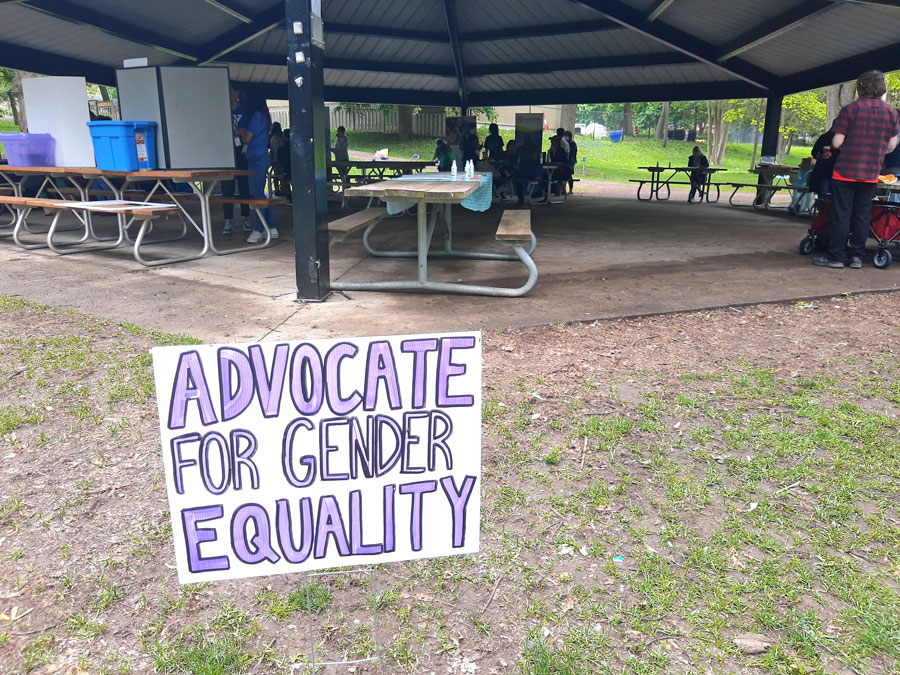GUELPH – A group of agencies that serve victims of gender-based and domestic violence in Wellington County, Guelph, and Waterloo, met in person on May 27. For many it was the first time in two years.
Billed as a “Celebration of Survivorship,” the event was open to the public, but visitors didn’t necessarily identify themselves.
Instead there was discussion at booths and lots of hugs as people realized they had met virtually or talked on the phone but had never met in person.
Jensen Williams, public educator for Guelph-Wellington Women in Crisis, organized the function at Riverside Park in Guelph. There were displays, activities for kids, and food for the noon-hour meeting, but no script or agenda to cover.
“This really is just an opportunity for people who work in the field to meet, and for individuals to learn about all the agencies that serve this population,” Jensen said.
Many agencies, like Women in Crisis, directly serve victims of domestic violence, but for others, domestic violence is an indirect aspect of what they do – like the Wellington Guelph Drug Strategy, for example.
Manager Adrienne Crowder said drug use and abuse is her agency’s main focus, “but there’s often an interaction with violence and mental health and relational issues. They go hand-in-hand.”
The University of Guelph had representatives from its health and wellness centre and sexual violence centre at the event.
Sexual violence support and education coordinator Melissa Conte said the centre offers support to people impacted by sexual violence and training for faculty, staff and students on matters around consent. “Our goal is to provide a safe campus for all staff, students and faculty,” she said.
Katelyn Weinstein, a first year student who volunteers with peer-to-peer education, said assaults on campus are, sadly, not new.
“We try to focus on the cultural attitude that allows that. Sexual violence is a mentality,” she said.
Sexual violence and human trafficking are big concerns at the Southwestern Ontario Aboriginal Health Access Centre.
“All ethnic girls are more susceptible to being targeted for trafficking. A lot of this is due to colonial structures and a lack of response by police,” said Tamie Coleman, an Indigenous housing outreach worker.




